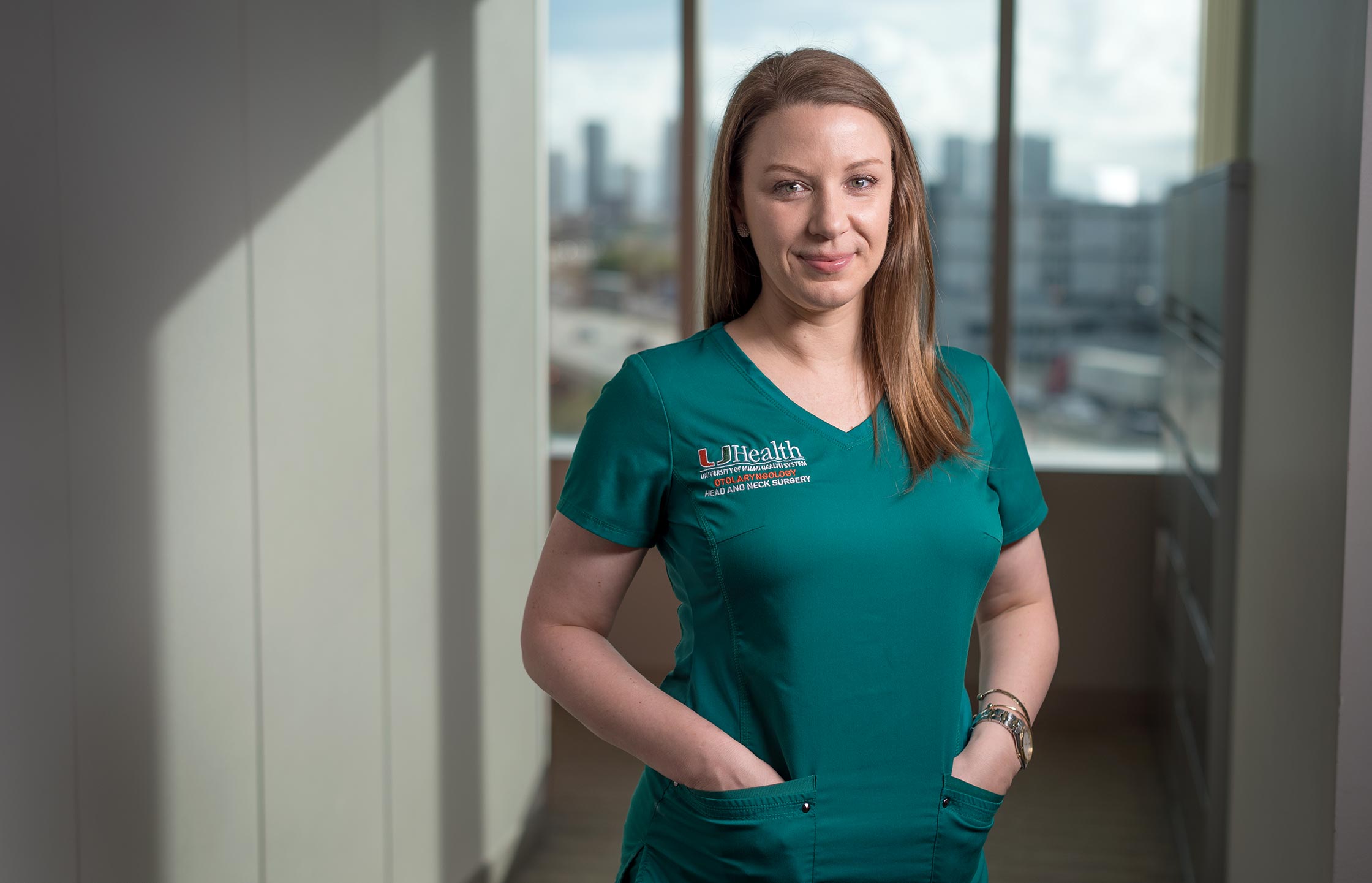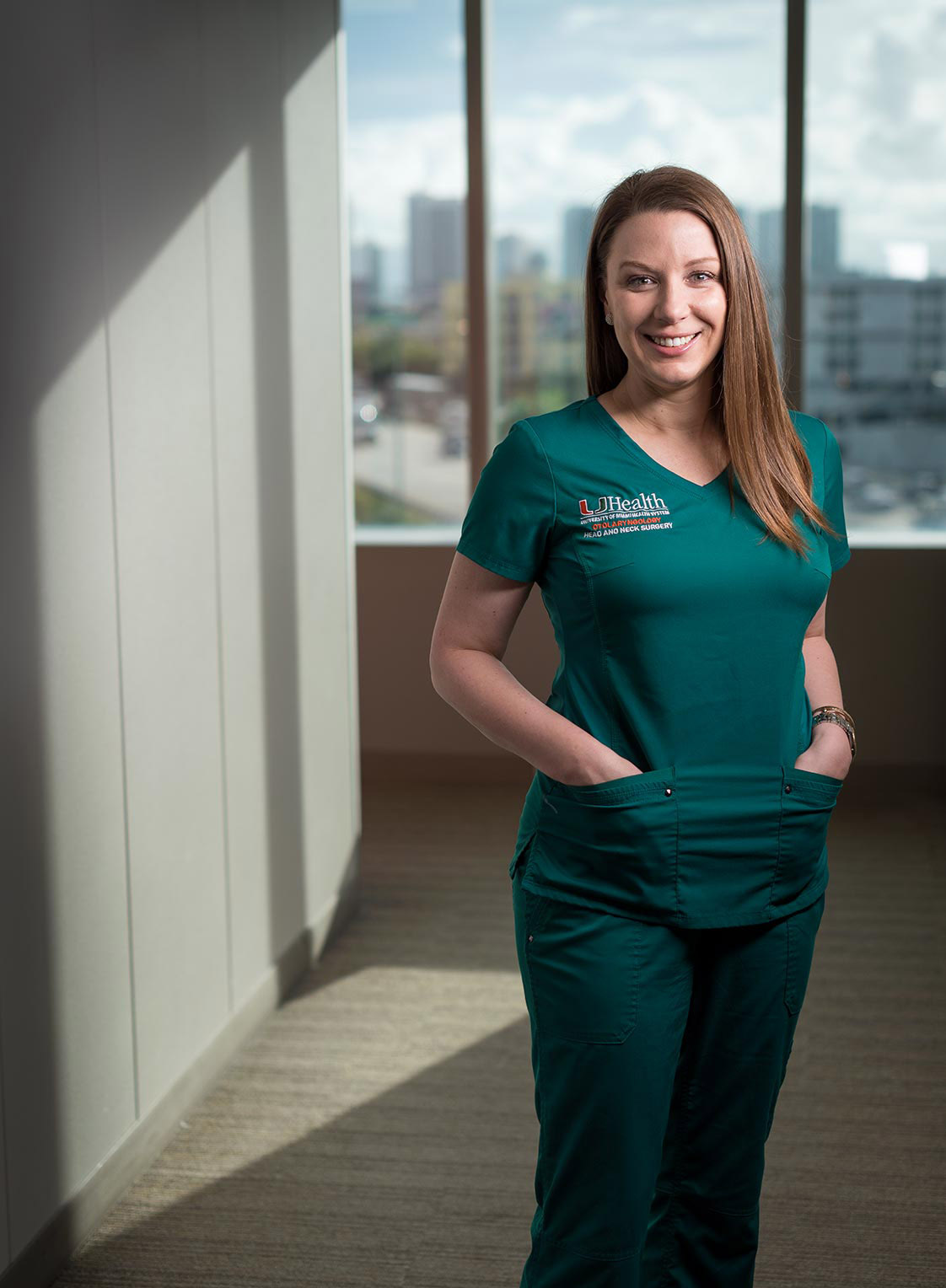A Message Needing
To Be Heard
UHealth audiologist Dr. Meredith Holcomb co-authors a seminal consensus paper on cochlear implantation
By Leigh Wilkins
Photography by Tom Salyer

C
ochlear implants have the potential to help millions of adults with hearing loss. Unfortunately, only a small percentage of adults who qualify for this life-changing technology have access to it. A consensus paper authored by 31 hearing experts from around the world could change that.
Published on August 27 in JAMA Otolaryngology, the paper includes 20 statements based on consolidated published evidence related to diagnosis, referral, treatment, and aftercare for adults living with severe to profound sensorineural hearing loss. The goal is to raise awareness and improve access through clinical practice to provide the best possible hearing outcomes and quality of life in adults eligible for a cochlear implant.
Meredith Holcomb, Au.D., an audiologist at UHealth – the University of Miami Health System, was one of the paper’s co-authors.
“I was honored to serve on this panel, which included some of the most renowned otolaryngologists and audiologists from around the world,” Dr. Holcomb said. “It was a process of many months that involved a systematic review of literature, three rounds of voting, and a one-day meeting in Los Angeles. It was exciting to be part of a group that is so passionate about improving access to cochlear implantation.”
Much of Dr. Holcomb’s expertise is in the area of cochlear implants. She directs the multidisciplinary UHealth Ear Institute Hearing Implant Program and is chair of the American Cochlear Implant Alliance. This national organization helps improve access to cochlear implants, fuel research, and increase awareness and advocacy about these devices. Dr. Holcomb also helps train audiologists at UHealth who want to specialize in pediatric hearing loss and cochlear implantation.
Instant benefit for hearing-loss patients

“Cochlear implants provide an instant benefit to patients with hearing loss for whom hearing aids are not indicated or effective,” Dr. Holcomb said. “This technology is a powerful force for employment opportunities, social interaction, and an improved quality of life. But only about 10 percent of people in the U.S. who meet the criteria for cochlear implantation have access to the technology.”
One of the main reasons is lack of awareness — among providers and patients — about the indications for and benefits of cochlear implantation. That’s where the consensus paper could have a significant impact. Dr. Holcomb said she and her colleagues on the panel hope that medical organizations, consumer advocacy groups, and industry leaders will play a key role in getting the word out about the consensus paper.
“People with hearing loss might not seek care from an audiologist or otolaryngologist, so it’s essential for us to raise awareness about cochlear implants among primary care providers,” Dr. Holcomb said. “We need to push this technology into the spotlight because it offers people with severe to profound hearing loss the best chance to participate more fully in the world around them.”![]()


